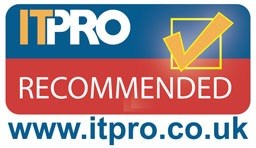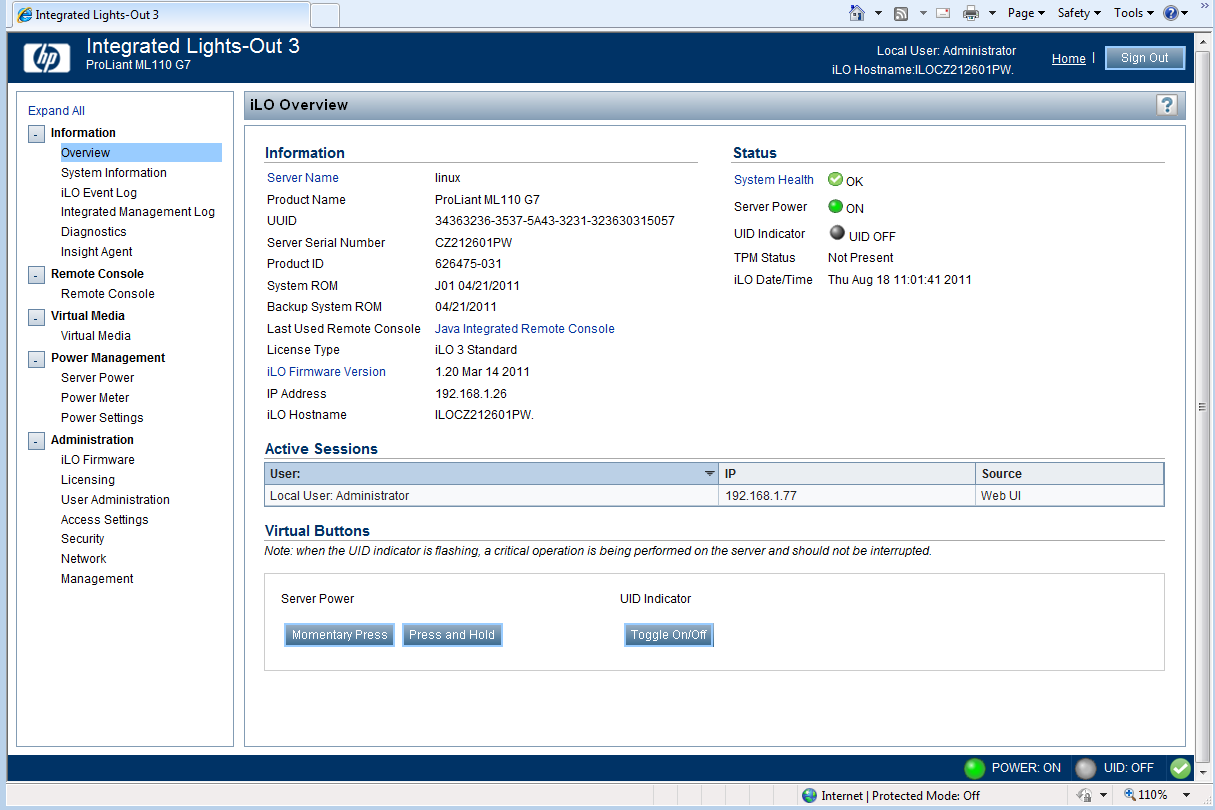HP ProLiant ML110 G7 review
HP's new ProLiant ML110 G7 is aimed at growing businesses ready to invest in a proper server. In this review Dave Mitchell takes a closer look at HP’s first Xeon E3 tower server and finds it has some very useful features that will appeal to SMBs.
It may be an entry-level server, but the ProLiant ML110 G7 packs a lot of features into its compact chassis. It’s well built, is quiet enough for a small office and has an impressive range of storage options. The embedded iLO3 controller sets it apart from the competition and makes it ideally suited to businesses that need full remote access to the server for management, monitoring and performing diagnostics.


HP scores highly in our books for remote server management as the ML110 has an embedded iLO3 controller. This is the same controller as found in all the high-end ProLiant servers which we first saw in our review of the ProLiant DL380 G7.

The iLO3 shares access with the first of the server's two Gigabit Ethernet ports, but you can buy an optional upgrade which adds a dedicated management port. These features make the ML110 G7 well suited to remote sites, branch offices or IT providers as it can be accessed easily over the Internet for full remote diagnostics and, with the optional upgrade, remote control.
We were quite fond of Dell's little PowerEdge T110 II, but that model is beaten soundly by HP when it comes to remote management. It doesn't support Dell's iDRAC6 Express or Enterprise optional upgrades and only had a basic embedded BMC (baseboard management controller). This provides very limited remote access to the server and only allows the power supply to be controlled using Dell's IPMISH command line utility.
Power options are also superior as the ML110 G7 can be supplied with a fixed 350W supply or up to two 460W hot-plug supplies. The review system included one 460W hot-plug supply with the second module costing around 155.
The server is also easy on power consumption with our in-line power meter clocking the review system at only 35W with Windows Server 2008 R2 in idle. With the SiSoft Sandra benchmarking application exercising the eight logical cores of the Xeon E3 processor this peaked at only 97W.
Sign up today and you will receive a free copy of our Future Focus 2025 report - the leading guidance on AI, cybersecurity and other IT challenges as per 700+ senior executives
Dave is an IT consultant and freelance journalist specialising in hands-on reviews of computer networking products covering all market sectors from small businesses to enterprises. Founder of Binary Testing Ltd – the UK’s premier independent network testing laboratory - Dave has over 45 years of experience in the IT industry.
Dave has produced many thousands of in-depth business networking product reviews from his lab which have been reproduced globally. Writing for ITPro and its sister title, PC Pro, he covers all areas of business IT infrastructure, including servers, storage, network security, data protection, cloud, infrastructure and services.
-
 AI-generated code is fast becoming the biggest enterprise security risk as teams struggle with the ‘illusion of correctness’
AI-generated code is fast becoming the biggest enterprise security risk as teams struggle with the ‘illusion of correctness’News Security teams are scrambling to catch AI-generated flaws that appear correct before disaster strikes
By Emma Woollacott Published
-
 ‘The fastest adoption of any model in our history’: Sundar Pichai hails AI gains as Google Cloud growth, Gemini popularity surges
‘The fastest adoption of any model in our history’: Sundar Pichai hails AI gains as Google Cloud growth, Gemini popularity surgesNews The company’s cloud unit beat Wall Street expectations as it continues to play a key role in driving AI adoption
By Ross Kelly Published
-
 Why Anthropic sent software stocks into freefall
Why Anthropic sent software stocks into freefallNews Anthropic's sector-specific plugins for Claude Cowork have investors worried about disruption to software and services companies
By Nicole Kobie Published
